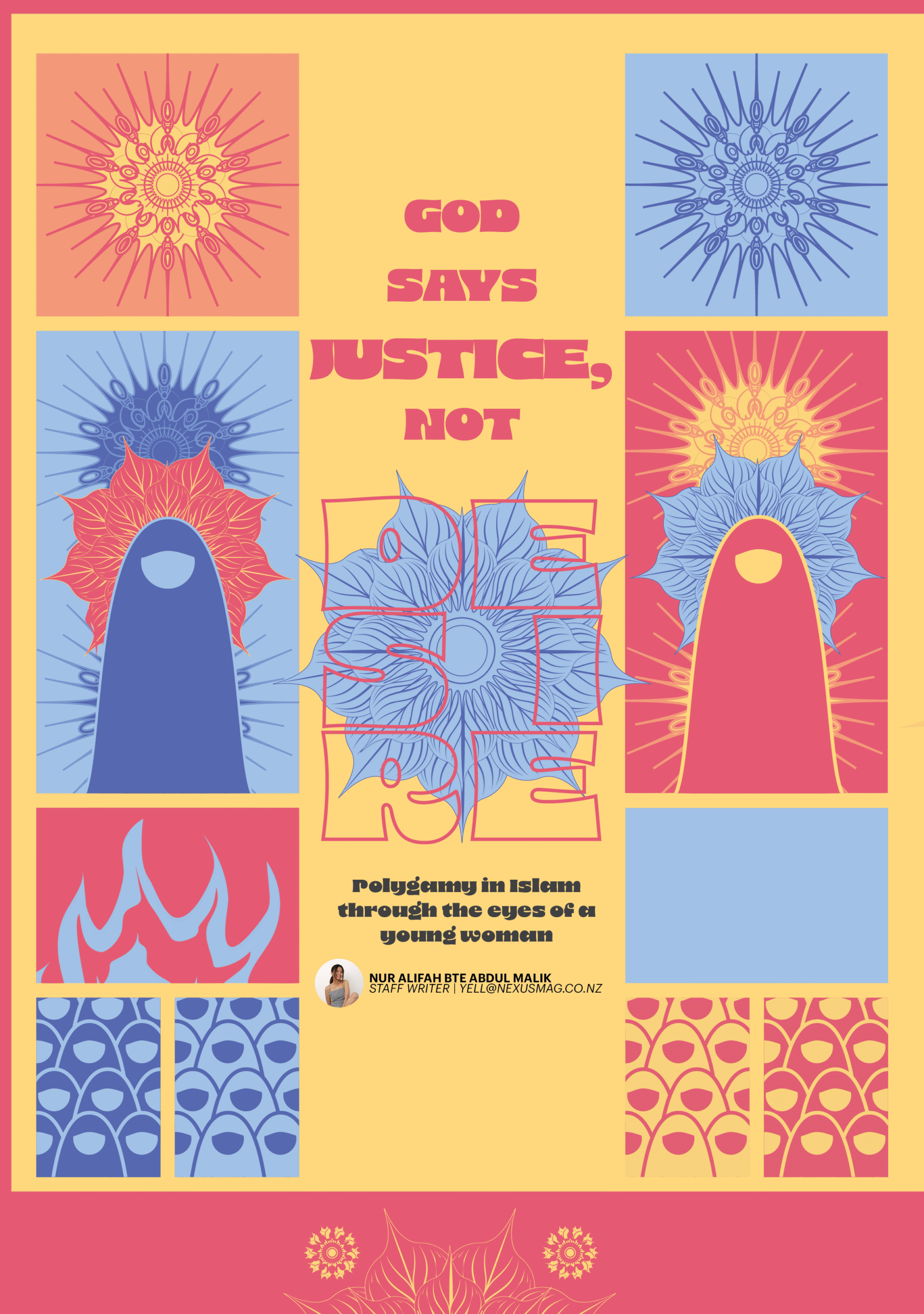
Polygamy in Islam through the eyes of a young woman
Having grown up in a Muslim home, I was taught that Islam is a religion founded in justice, mercy, and balance: A faith that champions the rights of women, protects the vulnerable, and demands fairness in every aspect of life. But as I have stepped into adulthood, and especially as a young Muslim woman navigating between tradition, modernity, and sometimes contradiction, I’ve found myself grappling with how certain teachings are practiced in manners that stray far from their intended purpose.
One of the most challenging and controversial of these is polygamy.
In Islam, polygamy is not forbidden, but neither is it encouraged as a norm. Yet, in many communities today, it is practised in a way, which undermines its intended spirit, often at the expense of women’s dignity and emotional well-being. As someone who loves her faith deeply, I believe it is time we speak honestly about this issue across generations, cultures, and even religious lines.
What Does Islam Actually Say?
Polygamy is permitted in Islam during times when widows and orphans were vulnerable, usually post-war. The Qur’anic verse, Surah An-Nisa (4:3). Explicitly permits polygamy, stating:
“Marry women of your choice, two, three, or four, but if you fear that you cannot deal justly with them, then (marry) only one.”
The emphasis here is not how many wives one might have, but on whether he can be just. Justice, in this circumstance, is not just about money or material provision. It is emotional fairness, time, love, and respect, all equally distributed. Even the Prophet Muhammad (peace be upon him), who himself had multiple wives, maintained strict fairness and expressed the difficulty of just distribution.
So, polygamy in Islam is not a blanket approval to horde desires. It is a conditional allowance, designed to address specific social needs, not personal indulgence.
Unfortunately, patriarchal societies today misuse this allowance. Patriarchal structures have turned a sacred responsibility into a cultural convenience. I have encountered women whose husbands took second wives without consulting them beforehand. People shame others for expressing pain, tell them jealousy is a weakness, and define “real faith” as silent acceptance.
This is not just a Muslim issue. Around the world, religious texts are often interpreted through male-dominated lenses. But in Islam, the misuse of polygamy feels especially painful because it directly contradicts the values the faith actually upholds, which are equity, compassion, and consent.
We often discuss the legality of polygamy, but we rarely address the emotional toll it takes on women. People share your presence in a marriage without your knowledge or choice. Imagine the internal conflict, wanting to honour your faith but feeling betrayed by someone who uses the same faith to justify his actions.
Many women suffer in silence, afraid to speak up for fear of being labelled as non-Muslim (Kafir) or rebellious. But faith is never meant to silence us, it is meant to protect us. Examples of women who questioned, debated, and received attention abound in the life of the Prophet.
“Why should we not be?”
A Message Across Communities
We must relearn our religion with fresh eyes and honest hearts. Faith isn’t static; it demands reflection. We cannot continue to defend cultural habits as religious truths. When we say that Islam allows polygamy, we must clarify the conditions that allow it. Polygamy is permissible only when it is practiced with justice, consent, and genuine consideration for the wellbeing of all involved.
To our elders and leaders: Your guidance shapes how these topics are taught and lived. Please be bold enough to speak the full truth, not just the half that serves tradition. Silence can be complacency.
For interfaith readers, it is crucial to understand that Islam, like many world religions, is usually encountered or often misunderstood after cultural customs overtake written scripture.
True Islam gave women inheritance rights, legal agency, and personal freedom long before many other societies.
Polygamy will continue to be a relevant topic as Islam expands. Some women, of their own free will, enter polygamous marriages that work and thrive. They deserve the same respect as anyone else.
It’s important we acknowledge what scripture permits and what decades of habit exploits.
This isn’t a call for rebellion. It’s a call for restoration. Let’s return to the spirit of the Qur’an, not just the broad reading of it. Let’s raise our voices for those whose piety has silenced them. And let’s remember that questioning injustice is not an act of disobedience; rather, it is an act of faith.
I am not anti-Islam; I am pro-justice. I am not against tradition; I am against harm. I believe in a God who hears the unheard, and I believe God is on the side of those seeking truth with sincerity.
Polygamy in Islam is not the enemy. Misinterpretation is.